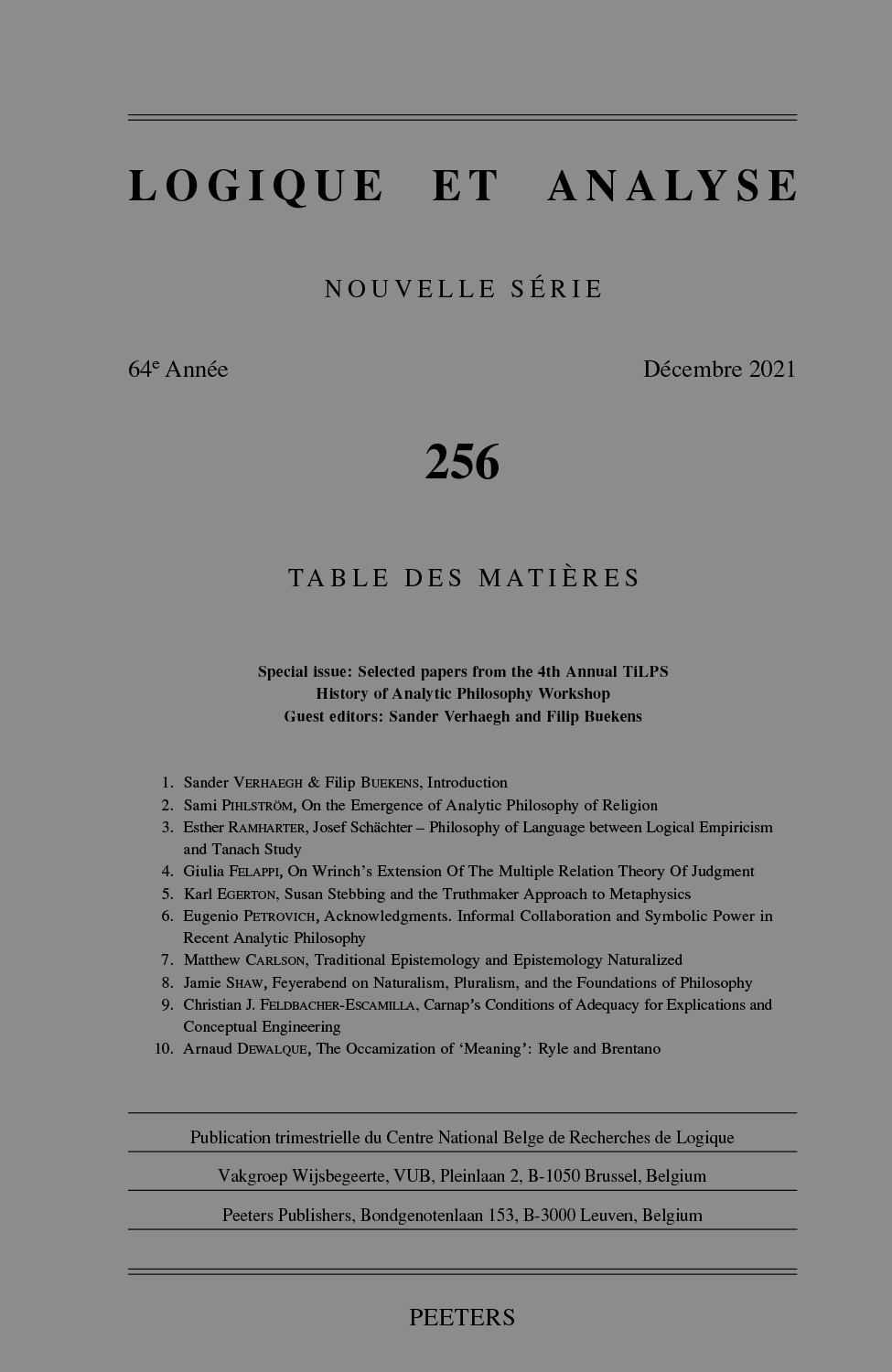 previous article in this issue previous article in this issue | next article in this issue  |

Preview first page |
Document Details : Title: Inquiry in Conversation Subtitle: Towards a Modelling in Inquisitive Pragmatics Author(s): HAMAMI, Yacin Journal: Logique et Analyse Volume: 228 Date: 2014 Pages: 637-661 DOI: 10.2143/LEA.228.0.3078177 Abstract : Conversation is one of the main contexts in which we are conducting inquiries. Yet, little attention has been paid so far in pragmatics or epistemology to the process of inquiry in conversation. In this paper, we propose to trigger such an investigation through the development of a formal modelling based on inquisitive pragmatics — a framework offering a semantic representation of questions and answers, along with an analysis of the pragmatic principles that govern questioning and answering moves in conversations geared towards information exchange. Our starting observation is that an interrogative inquiry in a conversation takes the form of a finite sequence of questioning and answering steps, and appears thereby as an inherently temporal process. The central notion of interrogative protocol introduced in this paper precisely aims to capture the temporal dimension of inquiry. Interrogative protocols are defined as branching-time tree structures encoding all the possible sequences of questioning and answering steps — i.e., all the possible inquiry paths — that can subsequently occur in a starting conversational situation in accordance with the principles of inquisitive pragmatics. They provide us with a formal environment to define and investigate the epistemological notions of interrogative inquiry and interrogative consequence in conversational contexts. One of the main interests of the resulting framework is to enable a formal investigation of central epistemological issues relative to interrogative inquiry under the form of computational problems. We frame three key inquiry problems along this line, and we then propose an algorithmic procedure for solving them in the restricted case where the inquirer has at her disposal a finite number of questions in her inquiry. We conclude by relating our approach to Wiśniewski’s Erotetic Search Scenarios and Hintikka’s Interrogative Model of Inquiry. |
 |


